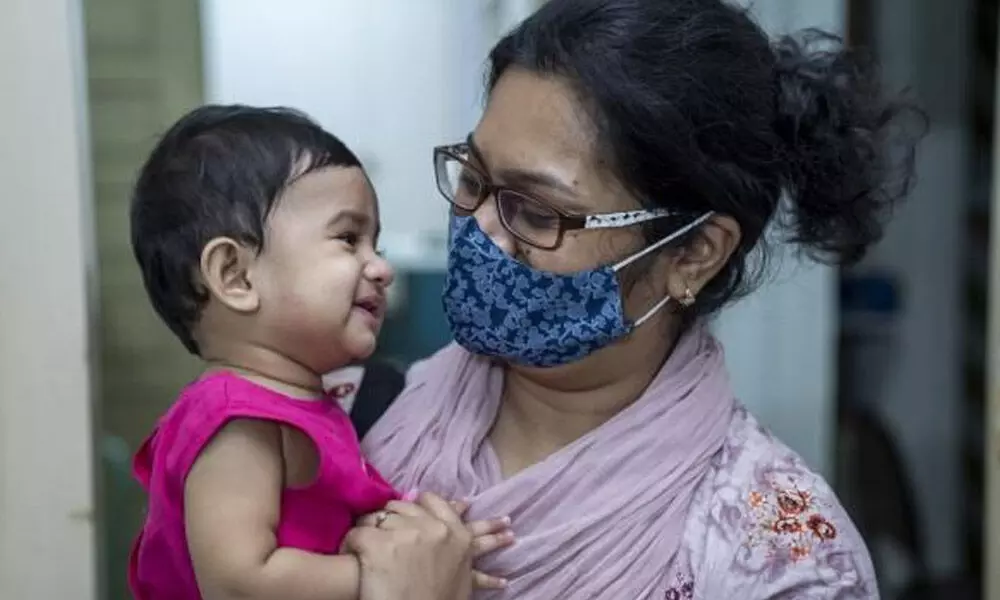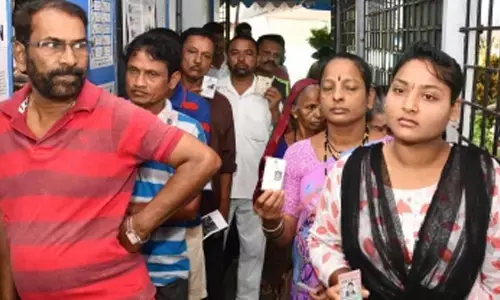Symptoms and preventive measures: Coronavirus in children

Symptoms and preventive measures: Coronavirus in children (Representational image)
Coronavirus in children: Coronavirus (Covid-19) illness can affect children of all ages. However, most infected children do not get as sick as adults, and some might even display no symptoms at all.
Coronavirus (Covid-19) illness can affect children of all ages. However, most infected children do not get as sick as adults, and some might even display no symptoms at all. Children are likely to be innocent carriers of the virus and could potentially spread it to other children who are a higher risk of suffering severe symptoms from Covid. In some rare and severe cases, children can even develop MIS-C, a condition where there is inflammation throughout the body, which can potentially be dangerous and fatal for the child. Parents and guardians have an important role to play in educating their children about the coronavirus in a palatable manner and inculcating a sense of responsibility in them. The following is a brief guide for parents:
Is it possible for children to get Covid-19?
Yes, of course. Parents and families should be informed that not only can SARS-CoV-2 infect children and cause COVID-19, they can also be carriers of the virus and transfer it to other children and adults. COVID-19 can cause serious illness in children, especially in children with co-morbidities and in rare cases, fatalities have occurred. As a result, it is important to take preventive measures to avoid infection in both children and adults.
Is it possible for new born to get Covid-19?
In exceedingly rare cases, it is believed that it is possible for women who are exposed to the virus to pass on the infection to their kids. Infants can get infected as soon as they are born. Although severe incidents have occurred, most newborns that test positive for the coronavirus have little or no symptoms and they recover.
Symptoms of coronavirus in newborn and children
Children can present in varying degrees of severity. They could be asymptomatic or incidentally tested positive, mild, moderate and severe/critical illness. Some of the symptoms that children may experience usually:
♦ Feve
♦ Cough, cold and sore throat
♦ Shortness of Breath
♦ Headaches and Muscle Soreness
♦ Digestive Symptoms – vomiting, loose stools and abdominal pain
♦ Fits
COVID-19 difficulties are more common in children with underlying health concerns or co-morbidities, such as obesity, lung disease, heart disease, renal disease, blood disorders, or a compromised immune system.
When should you see a doctor?
The majority of children have no symptoms or have mild-to-moderate symptoms. These kids don't need to see a doctor or go to the hospital. Parents and guardians should contact a physician if their kid exhibits any COVID-19 symptoms. The doctor can advise you on the symptoms to be on the lookout for as well as treatment options at home. A kid may also require a referral for COVID-19 testing in some locations.
See a doctor at once if the child is experiencing any of the following symptoms-
♦ The child seems to be extremely sick
♦ They develop a rash.
♦ Their symptoms improve and then deteriorate.
♦ Recovered from COVID-19 but started developing inflammatory symptoms such as rash, fever or bloodshot eyes.
Preventive measures
Keeping children away from people who are (or could be) infected with COVID-19, including family members, is the greatest method to prevent them from contracting the virus. Here are three of the most effective methods for keeping your children healthy.
♦ Social distancing: The more individuals your children come into touch with, and the longer that contact lasts, the more likely they are to become infected with the coronavirus.
♦ Wearing a mask: Adults and children should wear a mask that covers both their nose and mouth when out in public, especially in circumstances when physical distance is not practical.
♦ Washing hands: Washing hands is really important. After using the restroom, sneezing, coughing, or blowing their nose, before eating (even snacks), and shortly after coming indoors from the outside, children should wash their hands.
Parents should educate their children to routinely wash their hands with soap and warm water for at least 20 seconds. These actions can be taken by parents, caregivers, and other adults to stop the virus from spreading and lowering the chance of a kid contracting it.
(The author is Consultant – Paediatrics, Aster RV Hospital)








